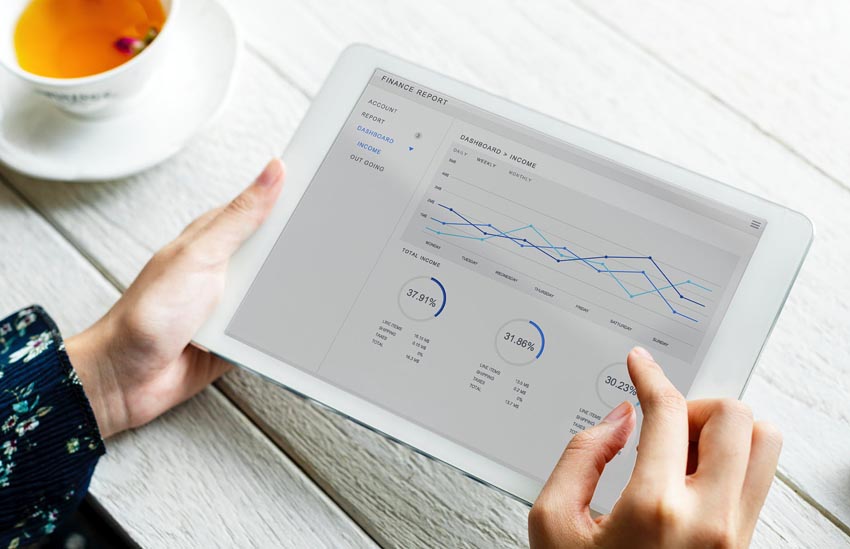Is data analyst a good career for you? From challenges to what being a data analyst will be like on a daily basis, Analytics professional Surjeet Singh discusses everything about the big data career path.
1. Career in Big Data Analytics
Data analytics (or data science) is the profession that deals with systematic study of big data to achieve business goals. Big data is a term that means a large a collection of data. Is data analyst a good career for you? Well, it all depends on your interests and career goals. A career as a data analyst is a great idea for those who love numbers and statistics.
These days, from e-commerce websites to search engines, every modern business collects data about their customers and costs. A lot of big decisions in companies are based on insights from data, especially data on customer behavior. This big raw data is then analyzed to get useful information about the business. This is structured and studied to provide solutions to a company’s questions, or interpret patterns that can help a business.
Contents: Jump to Section
1.3 Social Image
1.4 Reasons to Become a Data Analyst
2.2 Physical Demands
2.3 Psychological Demands
3.2 Related Hobbies to Take Up
3.3 Related Movies/ TV Shows
3.4 Related Fiction to Read/ Novels
4.2 Traveling Required
4.3 Average Workday/What to Expect
5.2 Threats from Automation
5.3 Common Reasons for People to Quit
1.1 Types of Data Professionals
Data analysts are a type of data professional, or analytics professional, which is what I am, too. There are six different types of data science paths or data professionals:
- data analysts
- data engineers
- database managers
- data scientists
- data architects
- database administrators
A data analyst’s main role is to structure, analyze and interpret raw data, in order to solve business problems, or find patterns or trends, etc.
Data scientists use machine learning models, or algorithms, and statistics to interpret raw data. And data engineers develop the software used by data scientists and analysts. They build, monitor, test and optimize the platforms or systems for data storage and analysis.
I am an Analytics Professional and my technical skills include coding and analysis using various analytical tools like SAS, SQL, Python, R and Tableau. These tools help data analysts make sense of the raw data. This helps companies understand their customers’ needs and ultimately, increase profits.
1.2 Industry/Sector
Analytics and data science industry, finance, healthcare, every major industry.
Every industry today employs analytics professionals, be it IT, healthcare, retail, media, banking and finance etc. For example, personally, I have experience in finance and HR benefits industry.
1.3 Social Image
Generally respectable but not fully understood by everyone.
The field of data analytics is very happening nowadays as everybody is talking about Data Science/ Analytics. Due to the growth in awareness about big data, and good salaries in this profession, the data science industry has become well respected. However, during a majority of times, it becomes difficult to explain my profession since many people still don’t completely understand it.
1.4 Reasons to Become a Data Analyst
Job fulfillment, opportunity to improve clients’ businesses, good salary and work-life balance.
As per my opinion, best things about any profession are a combination of various factors. This includes the organization you are working for, the projects you work on, your seniors at work, etc.
For me, it is the sense of fulfillment that comes from the fact the clients make decisions on the basis of work or analysis I do. Data analytics is a new field so it has high work pressure. So good salary and work-life balance are dependent on your organization and fortunately I enjoy both.
2. What It Takes to Be a Data Analyst
2.1 Personality Traits Required/ Preferred
Good communication skills especially verbal, logical thinking, an eye for details and common sense.
Since being a data analyst puts you directly in contact with the client, and good presentation of your analysis is crucial to your work, good verbal communication skills are a must. You should be able to communicate clearly and systematically. Moreover, being a data analyst is all about interpreting big data to draw conclusions on how to help a business. So logical thinking and analytical skills are very important in this field.
Interpreting data requires attention to detail. Raw big data can give so many insights that can help a business, so you’ll need the ability to find solutions, thoroughness and accuracy.
2.2 Physical Demands
Excessive screen-time, traveling may be required for high-level professionals
Like so many professions these days, data science is a computer-based field. Therefore, all working hours are spent in front of the computer. This can be tiring for the eyes, so make sure to take breaks and get some off-screen time during your free hours.
For mid to senior level managers or high-level positions, frequent traveling can also be a work demand.
2.3 Psychological Demands
For a data analyst, work load really depends on the client and their business goals or requirements. Some clients or projects are more demanding, and others less so. In some cases, the work pressure may be higher, to deliver results on time, which will mean increased working hours.
3. How to Build Interest in a Career in Data Analytics
3.1 Extra Curricular Activities Recommended
Coding, chess, sports club.
Data analyst’s job requires problem solving and analytical thinking skills, so it’s a great idea to play games like chess which can improve your logical thinking. You can also join computer or coding classes online or a coding club in your college. These will help you develop interest in various computer languages, and develop your computer skills. Data analysts use programs like SAS, SQL, Python, R and Tableau, which you don’t need to learn before college, but it helps to have some background or interest in computer programming.
Furthermore, you should also play any outdoor sports of your choice on a regular basis. There are two ways it’ll help you in your career later on. Firstly , it will keep you healthy and secondly, it will be a great stress-buster.
3.2 Related Hobbies to Take Up
Reading/ blogging, strategy computer games, rubik’s cube, puzzles.
Reading books can be an interesting start to building your vocabulary in school. This will help you be a better communicator later on in life. Moreover, blogging is also an interesting hobby to take up as a child, since it’ll help you improve your presentation skills. Also, it’ll develop computer and internet skills, and also develop logical thinking skills.
Also, try to improve your logical thinking skills through strategy games like Monopoly or by solving puzzles or rubik’s cube, etc.
3.3 Related Movies/ TV Shows
- Minority Report (PG-13)
- 21 (PG-13)
- The Imitation Game (PG-13)
- Moneyball (PG-13)
- A Beautiful Mind (PG-13)
- Intelligence (TV show)
- Mr. Robot (TV show)
- Numb3rs (TV show)
3.4 Related Fiction to Read/ Novels
- Big Data: A Revolution That Will Transform How We Live, Work and Think
by Viktor Mayer-Schonberger (Author), Kenneth Cukier - Everybody Lies: Big Data, New Data, and What the Internet Can Tell Us About Who We Really Are
by Seth Stephens-Davidowitz - Data Structures and Algorithms Made Easy: Data Structures and Algorithmic Puzzles
by Narasimha Karumanchi
4. Life as a Data Analyst
4.1 Part-Time Options
Data analysis is a full-time job, and usually, professionals aren’t hired on a part-time basis. So, this field leaves little to no time for any part-time jobs either, since the projects are time-consuming and mentally exhausting.
4.2 Traveling Required
Higher level management professionals like Delivery Manager, Directors, etc. are required to travel to client locations for project meetings.
4.3 Average Workday/What to Expect
Actually, every day in the life of a data analyst is slightly different depending on the project they’re working on. However, a typical day might start by collecting data from tools like Google Analytics, Adwords, etc. This may also involve collaborating with the client, or people across other departments such as marketers, sales executives, etc.
Then, it is our job to do data entry and data segmentation, which means dividing data into systematic subsets that can be examined for finding insights or patterns. This needs to be done after understanding the context or the problem that the client may be looking for solutions to. Some of the tools we use throughout the day include Tableau, Google Tag Manager, Microsoft Excel, SQL, etc.
Then, the next task is exploratory analysis and using tools or equations to find trends within the data. These insights may be about how the business can be improved, or finding anything that may not be bringing expected results for the company.
Finally, data analysts record these insights or results in the form of a report, such as a PowerPoint presentation, for both internal and clients’ meetings. These reports contain ideas backed up by the data analysis, or areas for improvement in the company.
5. Future of Your Career in Analytics professional
5.1 Retirement Prospects
Retirement age for data analysts is generally 60 years. Thereafter, one can become an independent consultant or can very well opt for teaching.
5.2 Threats from Automation
Yes.
Since data analysts use tools to generate insights about data, some of these skills may be transferable to artificial intelligence (AI) programs in the future.
5.3 Common Reasons for People to Quit
Well, some professionals join the field of data science purely because it gives a trendy job title or good paycheck. However, it’s only enjoyable in the long run if you really love numbers or statistics, and have a strong aptitude in these. Secondly, due to the recent increase in popularity for this profession, good jobs are getting tough to crack. Also, the work culture in your organization may be an important factor that determines whether you like it or not.
6. How to Become a Data Analyst
We’ve created a COMPLETE guide on how to how to become a data analyst. From data analyst qualifications to certification and courses, here’s all you need to know about the data analyst career path. So read more about how to become a data analyst in India, including degree required, salary range and top colleges.

Surjeet Singh is an Analytics professional with 9+ years of experience. Currently working at Wipro, Noida as an Analyst Programmer, he has worked in coding and analysis using SAS, SQL, Python, R & Tableau for 7 years.
Surjeet has been working on end to end delivery for clients, coaching & mentoring junior analysts and team management. His responsibilities include co-ordination with various stakeholders like Client Managers, Implementation Managers, Domain Managers and Lead Analysts, requirement analysis, client ownership, work delegation to the team, reviewing the SAS, SQL codes for their accuracy and efficiency and identifying and implementing areas of improvement.
He has a B.Sc. in Biotechnology ’05 from Amity Institute of Biotech, M.Sc. Biotechnology ’07 from University of Delhi and a PGDM (Finance and Marketing) from NIILM CMS, Class of ’10. In his free time, Surjeet enjoys reading non fiction. He can be contacted via email and LinkedIn.








Very professionally written.
Like!! Thank you for publishing this awesome article.